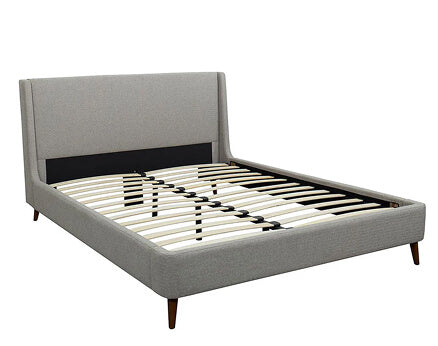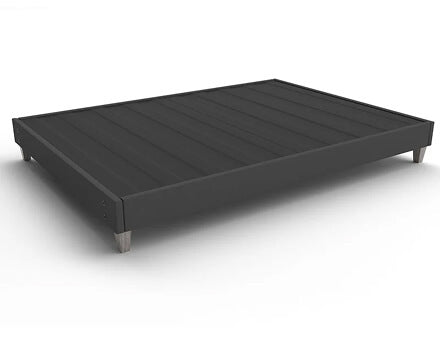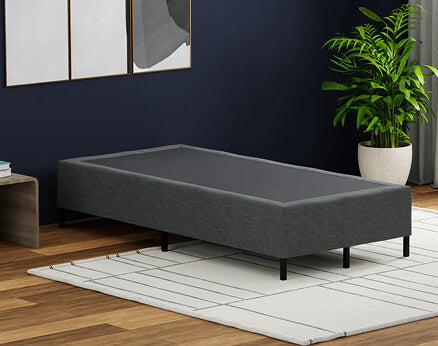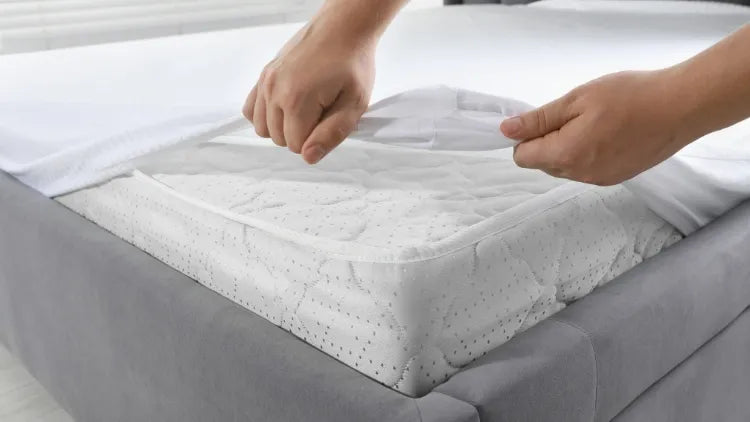Your mattress is one of the most essential furniture components in your home. It's where you rest, recover, and recharge. But how do you know when it's time to replace your mattress? Identifying the signs that your mattress is past its prime can help you make the right decision. This prevents it from negatively impacting your sleep and overall health.
General Lifespan of a Mattress
Like many other household items, mattresses have a limited lifespan. Most need replacement every 7 to 10 years, depending on the type. Memory foam mattresses may last about 7 years, while latex mattresses can last 10 years or more.
Innerspring and hybrid mattresses generally fall somewhere in between. However, several factors can influence when to replace a mattress. These include how often you use it, the quality of materials, and how well you care for it.
Physical Signs It's Time to Replace Your Mattress
Your mattress might be telling you it's time for a change, even if you haven't noticed. Visible wear shows that your mattress no longer provides adequate support and comfort.

If you find yourself sinking into the middle of the mattress or feel uneven areas, it's a vital sign that it's time for a mattress replacement. If your mattress starts making noises like creaking or squeaking, it could indicate internal structure issues. This is a sign that you may need a new mattress.
Sleep-Related Signs to Look For
Are you waking up tired or in pain? Your body could be telling you it's time to replace your mattress. A mattress that no longer supports your body properly can lead to discomfort and aches, especially in the morning.
Additionally, if you notice an increase in allergy or respiratory issues, it might be due to an old mattress harboring dust mites, allergens, or mold. Difficulty staying or falling asleep can also be linked to a mattress past its prime. If you're tossing and turning more than usual, consider a mattress replacement.
Health and Lifestyle Changes That Require a New Mattress
Significant changes in your health or lifestyle can also signal when to replace a mattress. If you've gained or lost considerable weight, your mattress might not feel as supportive as it once did.
Similarly, changes in your sleep patterns, such as sleeping with a partner or experiencing pregnancy, can necessitate a new mattress. If you've developed health conditions like back pain or arthritis, a better-suited mattress can make a big difference. It can significantly improve your sleep quality and overall well-being.
When to Replace Based on Mattress Type
Different mattress types show different signs when it's time for a replacement.
Memory foam mattresses might lose their ability to bounce back, leaving permanent indentations where you sleep. Innerspring mattresses often develop squeaks and sagging as the coils wear out. Latex mattresses are durable but can become softer over time, losing their initial firmness. Hybrid mattresses, which combine coils and foam, might show signs of wear in either component, leading to discomfort.
Knowing the signs specific to your mattress type can help you decide when to replace a mattress.
Proactive Steps to Extend Mattress Lifespan

Taking care of your mattress can extend its lifespan, delaying the need for a new mattress. Regularly rotating it, using a mattress protector, and keeping it clean are simple yet effective ways to keep it in good condition.
Awareness of early signs like slight sagging or discomfort lets you act before issues worsen. By proactively maintaining your mattress, you can ensure it provides the comfort and support you need for as long as possible.
Is It Time for a New Mattress? Let Us Help You Decide!
Replacing your mattress at the right time is critical to maintaining good sleep and overall health. If you've noticed any signs, it's time to replace your mattress.
Don't wait until your sleep quality is severely affected. Assess your current mattress today; if it's time for a new one, we're here to help. Purchase your perfect mattress replacement from us and ensure you continue to enjoy restful, rejuvenating sleep.
Frequently Asked Questions
Can a mattress topper extend the life of my mattress?
Yes, a mattress topper can add an extra layer of comfort and protect the surface of your mattress from wear. While it can't fix a sagging mattress, it can help preserve its condition by reducing direct pressure on it.
Is it better to replace my mattress or try to fix it?
If your mattress shows significant wear, like sagging or loss of support, it's usually better to replace it. Attempting to fix it may be ineffective. Temporary fixes might not address the underlying issues and could lead to discomfort or poor sleep quality.
Do different sleeping positions require different types of mattresses?
Yes, your preferred sleeping position can influence the mattress you need. For example, side sleepers often benefit from softer mattresses that cushion the hips and shoulders, while back sleepers might prefer a firmer mattress for better spinal support.
















![72 Facts About Sleep + Statistics [2024] Header](http://www.blissfulnights.com/cdn/shop/articles/HEADER-72-sleep-facts-statistics-2024.webp?v=1725556382&width=750)

Leave a comment
This site is protected by hCaptcha and the hCaptcha Privacy Policy and Terms of Service apply.